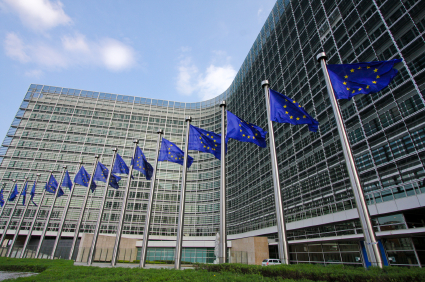The Euro to US Dollar (EUR/USD) exchange rate is struggling following weak Chinese data as investors flock to the safe-haven USD – and away from the Euro in anticipation of the upcoming ECB announcement.
Euro (EUR) Struggles to Continue Rise against US Dollar (USD) amid Greek Bailout and ECB Concerns
While the Euro had begun a climb against its giant rival at the end of February, this seems unlikely to continue as the EUR/USD exchange rate began steadily dropping again yesterday afternoon. The exchange rate is currently down around -0.3%, already down to 1.0965 from this morning’s opening levels of 1.1003.
Greek Bailout discussions resurfaced at the beginning of the week as inspectors returned to Athens for further negotiations on the economic situation. Some analysts have feared that ‘Grexit’ concerns could return in full-force depending on the outcome of these negotiations.
However, Greece seems determined to maintain its image and damage control by announcing yesterday that it would co-operate with Turkey on the current migrant crisis.
Perhaps the primary reason for current Euro weakness is the expected announcement from the European Central Bank (ECB) tomorrow.
Investors are hesitant to take direct action so soon before a decision on how to stimulate the Eurozone’s economy is made. It is thought that a continued reliance on Quantitative Easing and another deposit-rate cut will encourage bearish trends from disappointed EUR investors, though it is also possible that more relaxed attitudes could allow the Euro some growth.
Seven-Year-Low in Chinese Exports Prompt Investors to Flock to the Safe-Haven US Dollar (USD)
Hot on the heels of the worst Chinese Gross Domestic Product (GDP) in quarter of a century comes a huge -25% drop in Chinese Export data, as well as a far lower-than-expected trade balance result.
As a nation that so heavily relies on its trade connections with commodity bloc countries like Australia, Canada and New Zealand, many related commodity-currencies have suffered from a wave of low-risk sentiment.
Despite positive news on iron ore yesterday, this blow to Chinese economic confidence was enough to frighten investors away from commodity currencies like the AUD, NZD and CAD, towards the security of safe-haven currencies like the US Dollar.
This reliability is thought to be the primary cause for the ‘Buck’s’ current strength against other major currencies.
Major Announcement from European Central Bank (ECB) Predicted to Greatly Influence Euro (EUR) Movement
The US Dollar’s safe-haven attributes makes it particularly appealing in the EUR/USD exchange rate this week as investors anxiously anticipate whatever action the ECB may take to stimulate further economic growth in the Eurozone.
Previous moves from the ECB had proven to be unpopular among investors, with reliance in Quantitative Easing (QE) creating a bearish attitude in the Eurozone’s financial market. With underwhelming data releases over the last month, analysts predict further deposit rate cuts and a higher QE goal in order to stimulate the economy – a move that would cause further bearishness in EUR investors in the near future.
However, it is still possible for the shared currency to strengthen tomorrow if the ECB fails to expand easing to the extent expected.
US mortgage application demand data and Inventory data due for release later today is also a potential influence for the strength of the currently sought-after safe-haven currency – though it is unlikely to penetrate the importance of tomorrow’s ECB announcement and make a considerable effect on the EUR/USD pair.
The Euro to US Dollar (EUR/USD) exchange rate is currently trending in the region of 1.0964 while the US Dollar to Euro (USD/EUR) exchange rate trends in the region of 0.9118.



